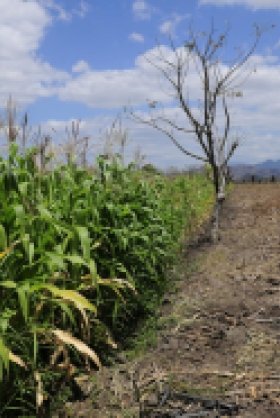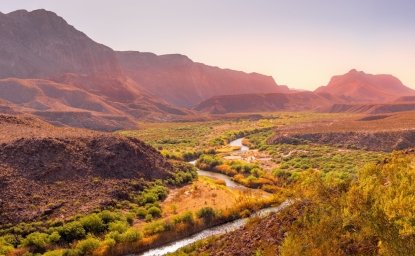Food Insecurity in the Northern Triangle: Leveraging Agricultural Policies and Programs for the Benefit of Smallholders






To examine the role of the international community in shaping Latin America’s environmental agenda, the Wilson Center’s Latin American Program and its Brazil Institute, Environmental Change and Security Program, China Environment Forum, and Global Europe Program launched a collaborative research project last year, Latin America’s Environmental Policies in Global Perspective. Through a series of papers written by experts representing diverse perspectives, the project explores how environmental challenges in Latin America increasingly condition the region’s most important diplomatic and economic relationships, and how those relationships in turn impact conditions on the ground.
In this new publication, we examine food insecurity in Central America’s Northern Triangle. As climate change upends agricultural productivity and output, particularly in countries along the dry corridor, an arid region that extends from southern Mexico to Panama, rural communities in Honduras and Guatemala have faced extreme drought and major losses of staple crops, such as beans and maize. Carrie Seay-Fleming, a doctoral candidate at the University of Colorado in Boulder, writes in “Food Insecurity in the Northern Triangle: Leveraging Agricultural Policies and Programs for the Benefit of Small Holders”: “Poverty, food insecurity, and out-migration occur despite strong economic growth. The dynamics show how agro-export growth does not automatically nor necessarily benefit rural or poverty-affected populations.” Shaping policies that address food insecurity in Central America’s Northern Triangle has become a key priority to limit outbound migration from the region to the United States.
Author


Latin America Program
The Wilson Center’s prestigious Latin America Program provides non-partisan expertise to a broad community of decision makers in the United States and Latin America on critical policy issues facing the Hemisphere. The Program provides insightful and actionable research for policymakers, private sector leaders, journalists, and public intellectuals in the United States and Latin America. To bridge the gap between scholarship and policy action, it fosters new inquiry, sponsors high-level public and private meetings among multiple stakeholders, and explores policy options to improve outcomes for citizens throughout the Americas. Drawing on the Wilson Center’s strength as the nation’s key non-partisan policy forum, the Program serves as a trusted source of analysis and a vital point of contact between the worlds of scholarship and action. Read more


Environmental Change and Security Program
The Environmental Change and Security Program (ECSP) explores the connections between environmental change, health, and population dynamics and their links to conflict, human insecurity, and foreign policy. Read more


China Environment Forum
China’s global footprint isn’t just an economic one, it’s an environmental one. From BRI investments in Africa and Asia to its growing presence in Latin America, understanding China’s motivations, who stands to gain - and who stands to lose - is critical to informing smart US foreign policy. Read more


Global Europe Program
The Global Europe Program is focused on Europe’s capabilities, and how it engages on critical global issues. We investigate European approaches to critical global issues. We examine Europe’s relations with Russia and Eurasia, China and the Indo-Pacific, the Middle East and Africa. Our initiatives include “Ukraine in Europe”—an examination of what it will take to make Ukraine’s European future a reality. But we also examine the role of NATO, the European Union and the OSCE, Europe’s energy security, transatlantic trade disputes, and challenges to democracy. The Global Europe Program’s staff, scholars-in-residence, and Global Fellows participate in seminars, policy study groups, and international conferences to provide analytical recommendations to policy makers and the media. Read more


Brazil Institute
The Brazil Institute—the only country-specific policy institution focused on Brazil in Washington—aims to deepen understanding of Brazil’s complex landscape and strengthen relations between Brazilian and US institutions across all sectors. Read more

Explore More
Browse Insights & Analysis
Water Security at the US-Mexico Border | Part 1: Background

China and the Chocolate Factory

Ongoing Debate: The Prohibition of GMO Corn in Mexico
